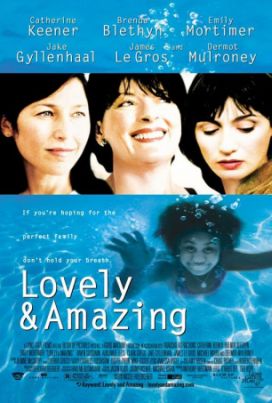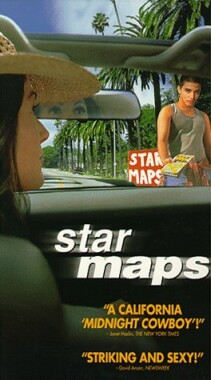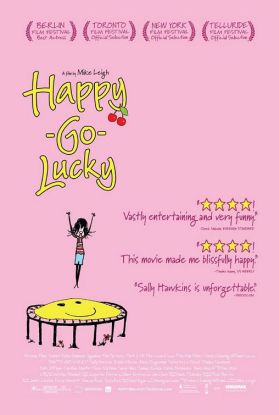Lovely and Amazing
At one point in Nicole Holofcener’s Lovely and Amazing, Elizabeth (Emily Mortimer) is dumped by her boyfriend, Paul (James Le Gros), who tells her “I don’t think I can give you what you want.”
“What do you think I want?” she asks.
“You want a girlfriend; someone you can talk about your upper arms with,” he says.
“That’s so mean!” she replies, though of course he is right. Male viewers might be tempted to say the same to Ms Holofcener, as neither Elizabeth nor her two sisters, Michelle (Catherine Keener) and Annie (Raven Goodwin) nor her mother, Jane (Brenda Blethyn), ever do anything that doesn’t involve the equivalent of obsessing over their upper arms. Jane’s husband, Elizabeth and Michelle’s father, left years before and has nothing to do with any of them. All three remain prey to neurotic anxiety about their personal appearance and attractiveness. Even Annie, the eight-year-old daughter of a crack addict whom Jane has adopted, has an incipient eating disorder with the added burden of trying to look more “white” like her mother and sisters.
The sense of estrogen overdose is enhanced by the fact that there are no sympathetic males in the film. Michelle is married to a bum called Bill (Clark Gregg) who is cheating on her with her best friend, and she begins a disastrous retaliatory affair with a 17-year-old geek Jordan (Jake Gyllenhaal). Jane is fantasizing about the married doctor who performs liposuction on her while Elizabeth, after being left by Paul, goes on to sleep with the narcissistic moron, Kevin (Dermot Mulroney).
Yet I found the film growing on me. This was partly because I liked the beautifully observed and witty vignettes in which the author’s girlfriend-like sympathies are restrained enough for the humor as well as the pathos of her characters’ insecurities to emerge and partly because those insecurities every now and then give way to something bigger and more general.
For example, the first time that Elizabeth, an actress, sleeps with Kevin, a would-be co-star she says, “If I asked you to do something weird, would you do it?”
“Sure,” he says, thinking she means something sexually unusual.
Instead she asks him to look at her and “tell me everything that’s wrong about me.” He has to be persuaded that she really does want a candid opinion. And so she does in a way too: she wants to see if he will mention those upper arms unprompted. So, as she stands naked before him, Kevin offers a detailed critique of everything else he thinks is wrong with her — without mentioning her arms. “What about my arms?” she says meekly.
“Your arms?” he says. “They’re fine. Oh! I see what you mean. Yeah, they’re a little loose at the top. A little flabby. They need to be toned.”
It’s very funny in a painful sort of way, but it also reminds us of the self-defeating nature of the quest for reassurance and the attempts, particularly by women, to link the language of love — including deceiving or supportive assurances of others (or themselves) that they are “lovely and amazing” — with some kind of reality that they can actually believe in.
Somewhere behind all this comic futility there is a dim sense of a larger problem with the culture. In the opening scene, for instance, Elizabeth is posing for a fashion shoot in a tarty, see-through outfit which she is too afraid to object to. She is going to have her picture in Vogue on the strength of a small part in a movie, and it could be a career breakthrough. Rather pathetically she hints about having “too much makeup” on, but the photographer, off-screen, brusquely reassures her: “It’s high fashion; it’s sophisticated.”
“I just don’t feel quite like myself,” says Elizabeth, making one last and hopeless plea to be allowed some shred of modesty.
“Who does?” says the invisible photographer.
But that’s about it for any attempt by Ms Holofcener to take her material beyond acute observation of a particular family of lonely and unfortunate women. Too often it seems that she is going over the same ground again and again. The anxieties just go on. Perhaps she, too, just wants a sympathetic ear. A girlfriend. And many girlfriends — with, I hope, their boyfriends — will no doubt oblige by watching with much sympathy as things happen to these women that are very like things that will have happened to themselves.
Only occasionally does the film reach beyond this to a more general pathos unconnected with women’s anxieties about their appearance. When, for example, Michelle and Jordan, a kid who seems as lonely and friendless as herself, compare notes they find they have nothing else in common but a link of sorts in the fact that, when both were young, Jordan’s father died and Michelle’s father abandoned her. “He never liked me,” she tells Jordan.
“He has to like you,” says Jordan, uncomprehending. “He’s your dad.”
For a moment she is silent before the breathtaking innocence of her new lover. “Sometimes I think I used to be nicer,” she replies meditatively. “I have a problem with anger.” Even if tainted by psychobabble, this sole moment of self-knowledge is all the more heart-breaking for being wasted on Jordan. It’s also a reminder that the anger is, as it so often is in women who start off with a sense of their own attractiveness (Michelle is a former homecoming queen, which gives date-poor Jordan quite a kick), a product of the gathering sense of being one of those flowers “born to blush unseen,/And waste its sweetness on the desert air.” But such moments are too rare.
Discover more from James Bowman
Subscribe to get the latest posts to your email.







